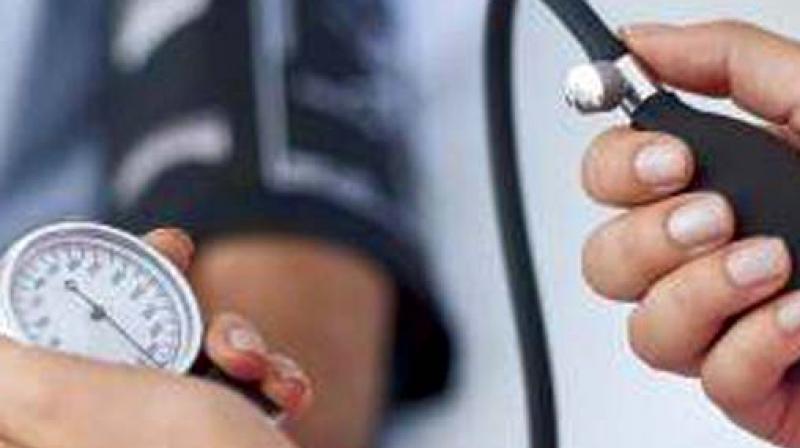Hypertension: A ticking time bomb, but little awareness
Hypertension is similar to cancer in the manner that it has a slow sneaky nature, with no symptoms at the onset.

Bengaluru: The prevalence of hypertension is high among Indians and many are either not aware of it or not taking proper treatment. According to an IndiaSpend report, nearly three in 10 Indians are affected by hypertension or high blood pressure (BP) and it is also responsible for 17.5% of all deaths and 9.7% of disability-adjusted life years (DALYS) across the country.
“Hypertension is similar to cancer in the manner that it has a slow sneaky nature, with no symptoms at the onset. It takes variable duration, sometimes up to a decade, for the symptoms to manifest. By that time, most organs may have already been damaged due to the pressure effect,” said Dr Deepesh Venkatraman, Consultant Interventional Cardiologist, BGS Gleneagles Global Hospitals, Bengaluru.
Hypertension can be treated with common inexpensive drugs, yet compliance is a problem. Experts stressed that reducing salt, avoiding alcohol and tobacco consumption, controlling body weight, getting regular exercise, eating more fruits and vegetables – these diet and lifestyle changes can bring down hypertension.
According to World Health Organisation (WHO), an average Indian consumes 10.98 grams of salt per day, 119% more than its recommended limit of five grams per day.
As per the report; malnutrition, air pollution, risks from a diet low in fruit, vegetables and whole grains, but high in salt and fat are the three top risk factors of death and disability across the country.
“Excess dietary salt is notorious for increasing blood pressure. With the salt component being inherent in our diet; hypertension could become possibly a major health crisis in the Asian community. It may often get diagnosed in the context of serious complications like stroke, heart and renal failure,” said Dr Bhaskar Balasubramanyam, Consultant General Medicine, Gleneagles Global Hospital.
When the pressure of the blood vessels remains high, hypertension can be controlled and prevented through lifestyle modification. Regarding the city’s lifestyle and eating habits, Dr Sudha Menon, Director, Internal Medicine, Fortis Hospital said, “Bengaluru has a very high incidence of hypertension due to change in lifestyle and eating habits. Hypertension is becoming more common among young working professionals, who are busy with work and have no time for self-care and requisite physical workout.”
She also emphasized that external factors such as increase in traffic, long commute and lack of proper sleep adds to their stress. “Majority of Bengalureans are unaware of the problem and it is usually diagnosed during a routine visit to the doctor or during a health checkup,” Dr Sudha added. The report also highlights that in India out of those suffering from the disease, only 24% are aware of it and a mere 20% get treated for the same with only 6-10% having it under control.

